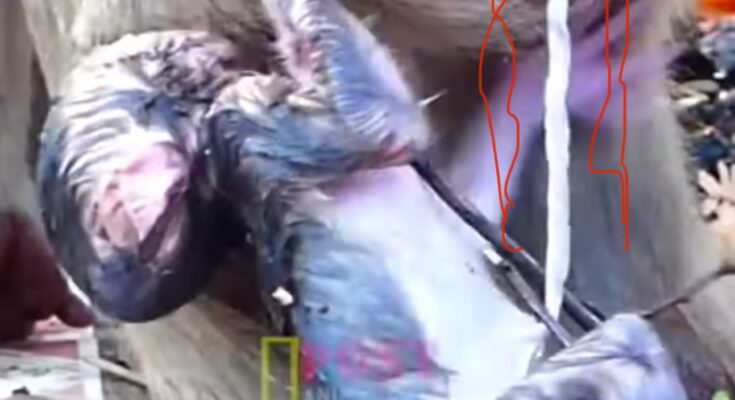In the heart of a quiet forest sanctuary, a tiny baby monkey entered the world — but just an hour after birth, the unthinkable happened. His mother, confused and frightened, turned away, abandoning the fragile newborn to face life alone. This heartbreaking incident reminds us of the complex emotions in the animal kingdom and the delicate balance between survival and compassion.
A Sudden Separation
The baby, a macaque, was born during the early morning hours. At first, the birth seemed normal, with the mother gently holding and inspecting her newborn. But something changed. Within the first hour, she walked away — slowly at first, then more decisively — leaving her tiny, helpless infant behind on the cold forest floor.
Experts at the sanctuary were stunned. While maternal rejection can happen in nature, it’s rare among macaques unless the mother is under extreme stress, sick, or unsure how to care for her young. Caretakers suspect the mother may be a first-time parent, overwhelmed by the process or sensing something wrong with the baby that humans couldn’t detect immediately.
Rescue and Immediate Care
Staff rushed to the scene to retrieve the trembling infant. Barely able to open his eyes and with his umbilical cord still attached, the baby clung weakly to the warmth of the towels he was wrapped in. Without intervention, he wouldn’t have survived the night.
Veterinarians provided immediate medical care, checking for injuries, dehydration, or birth defects. Fortunately, the baby was healthy but extremely vulnerable. In the following hours, a surrogate heating system, round-the-clock bottle feeding, and gentle human touch helped stabilize him.
What Causes Maternal Abandonment in Monkeys?
Maternal rejection in monkeys is not fully understood but can stem from various causes:
- Stress or trauma before or after birth
- Inexperience of first-time mothers
- Perceived illness or deformity in the baby
- Environmental changes or overcrowding
In captive or semi-captive environments like sanctuaries, the added human presence can also be overwhelming for some animals, affecting their natural instincts.
A Second Chance at Life
Thanks to the dedication of the sanctuary team, the baby monkey — affectionately nicknamed “Milo” — is now slowly growing stronger. A stuffed animal has become his surrogate mother for comfort, and he responds positively to human touch and care. As he grows, caretakers hope to eventually integrate him with other young monkeys who can help teach him social behaviors crucial for survival.
A Story That Touches the Heart
Milo’s story is both tragic and inspiring. It highlights the emotional depth of animals and the role that sanctuaries play in giving abandoned or injured creatures a second chance. While nature can be unforgiving, the compassion of humans can sometimes tip the scale toward hope.
As Milo takes his first wobbly steps into the world, he does so not alone, but surrounded by people determined to give him the love his mother couldn’t.



